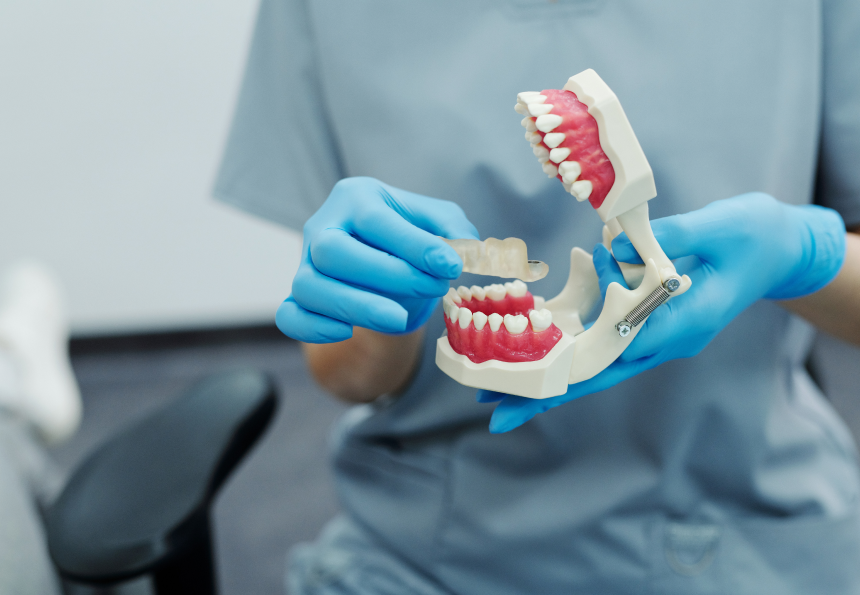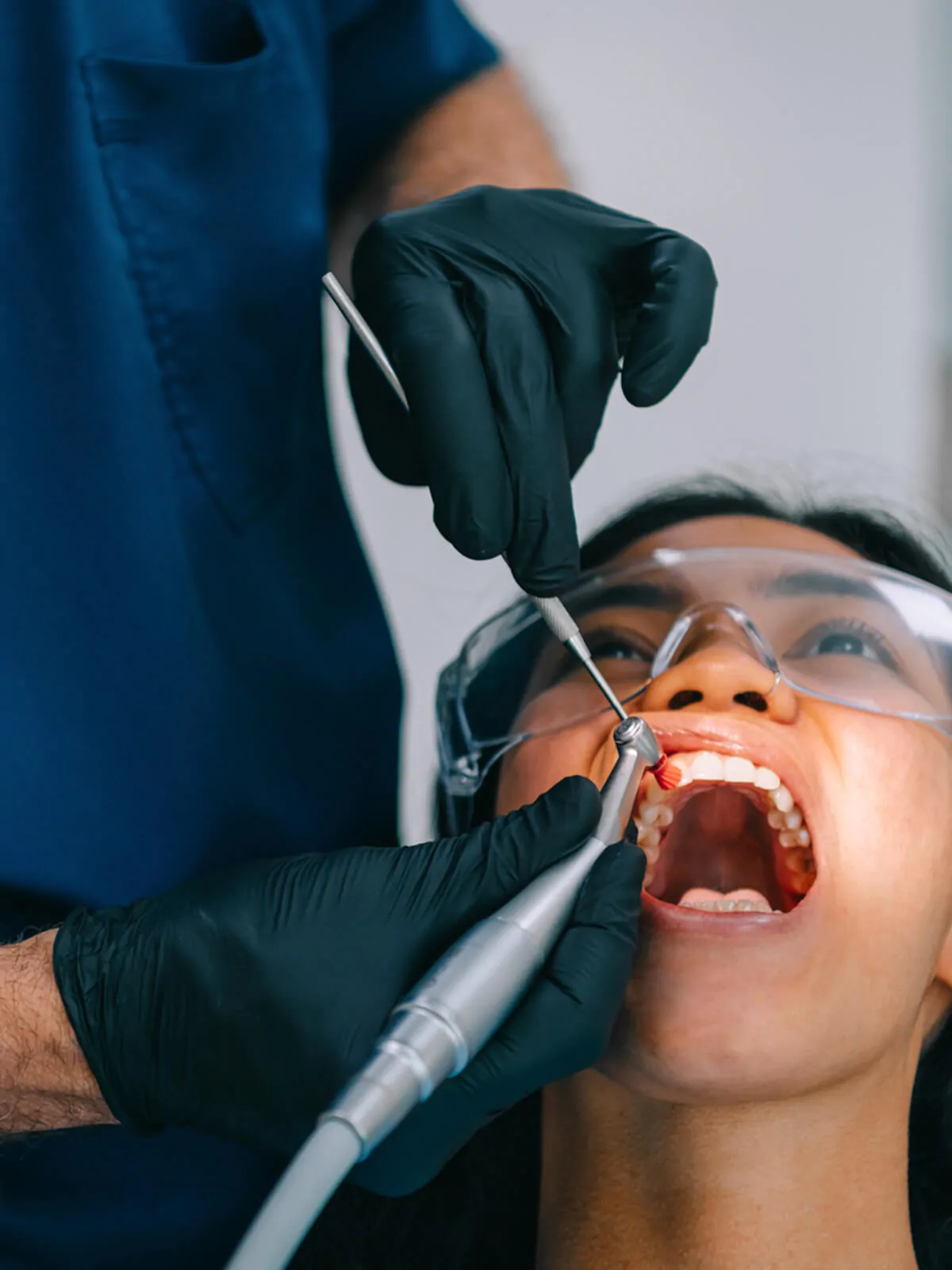A Guide to Common Oral Problems That Require a Dentist's Treatment
Toothaches, for example, can be symptomatic of severe concerns such as dental caries, split teeth, or abscesses, each needing particular interventions like dental fillings or origin canals. Influenced knowledge teeth and jaw conditions can introduce significant discomfort and difficulties.
Toothaches
Toothaches are a common oral condition that can vary from light discomfort to severe discomfort, commonly suggesting an underlying concern that calls for expert attention. This discomfort can stem from a range of sources, consisting of dental tooth cavities, cracked or fractured teeth, and dental abscesses. Each of these conditions postures considerable risks if left untreated, possibly causing much more extreme difficulties.
Dental dental caries, additionally understood as caries, are created by the accumulation of plaque that erodes tooth enamel, leading to openings or pits in the impacted teeth. Abscesses are agonizing infections at the root of a tooth or between a tooth and the periodontal, usually resulting from severe degeneration or without treatment cavities.
Reliable treatment of toothaches includes dealing with the origin cause. This might include dental fillings for cavities, crowns for fractured teeth, or root canals and anti-biotics for abscesses. Early treatment by an oral professional can prevent additional degeneration and relieve pain, ensuring optimal oral health and wellness.
Gum Disease
Periodontal illness, a widespread yet frequently ignored oral problem, shows up via swelling and infection of the gum tissues and supporting tissues. If left neglected, gingivitis can proceed to periodontitis, a more severe type defined by the damage of the supporting bone and connective tissue, eventually leading to tooth loss.
The main reason of periodontal condition is microbial plaque, a sticky, anemic movie that continuously forms on teeth. Poor oral health, smoking cigarettes, hereditary proneness, and certain clinical problems, such as diabetic issues, can worsen the threat of establishing gum tissue condition. Normal oral exams are essential for very early discovery and administration of this problem.
Treatment for gum disease ranges from specialist oral cleansing and scaling to more innovative procedures like origin planing and gum surgical treatment, relying on the seriousness. Maintaining excellent dental hygiene techniques, consisting of brushing two times daily, flossing, and utilizing an antiseptic mouth wash, can dramatically minimize the risk of gum tissue illness and advertise much healthier gums.
Tooth Cavities
Tooth cavities, additionally referred to as tooth decays, are a typical dental condition defined by the destruction of tooth enamel because of acid-producing bacteria in the mouth. These germs thrive on sugars and starches from food and drinks, producing acids that progressively erode the enamel, bring about tooth cavity development.
Early-stage cavities might disappoint signs and symptoms, yet as they progress, they can trigger tooth pain, sensitivity to chilly or warm, visible openings or pits in the teeth, and discoloration. If left without treatment, cavities can permeate much deeper layers of the tooth, potentially leading to extreme discomfort, infection, and even missing teeth.
Preventing tooth cavities entails a combination of great dental hygiene methods and nutritional habits. Routine cleaning with fluoride tooth paste, flossing, and routine dental examinations are essential. Dental professionals may additionally advise additional safety nets, such as fluoride treatments and oral sealers, to shield teeth from degeneration.
Treatment for cavities depends on their seriousness. Small tooth cavities can be resolved with oral fillings, which recover the tooth's framework. Advanced cases may require crowns and even root canal therapy if the decay has reached the tooth's pulp. Timely intervention by a dental practitioner is important to protect against difficulties and preserve general oral health.

Impacted Wisdom Teeth
Influenced wisdom teeth are a prevalent dental issue that happens when the 3rd molars, commonly referred to as knowledge teeth, stop working to fully emerge or line up properly within the mouth. This condition commonly arises from insufficient area in the jaw or an uncommon development angle of the teeth. Impacted wisdom teeth can result in a range of difficulties, consisting of pain, damage, and infection to surrounding teeth.
When knowledge teeth come to be influenced, they are frequently partially erupted or stay completely under the gum tissue line. This partial eruption can develop a path for microorganisms to get in the gum tissues, bring about infections that manifest as swelling, discomfort, and also high temperature. In addition, influenced knowledge teeth can put in pressure on surrounding teeth, potentially causing crowding or shifting.
A comprehensive dental examination, generally involving X-rays, is important for diagnosing influenced knowledge teeth. Treatment usually entails medical extraction, carried out by a dental surgeon. The treatment intends to ease pain and avoid further complications, such as cysts or damages to surrounding bone structures. Post-operative care is essential to ensure correct recovery and reduce the risk of infection. Normal dental check-ups are suggested to keep an eye on the condition and maintain dental health.
Jaw Conditions
Jaw disorders, jointly understood as temporomandibular joint (TMJ) problems, include a series of conditions that influence the jaw joint and surrounding muscular tissues. These disorders can show up with more helpful hints symptoms such as pain or inflammation in the jaw, trouble chewing, a popping or clicking audio when opening their explanation or closing the mouth, and also persistent headaches. TMJ disorders can arise from different aspects, consisting of arthritis, jaw injury, or habitual actions like teeth grinding or jaw clenching.
Medical diagnosis of TMJ conditions commonly entails a comprehensive evaluation by a dental professional, including a physical evaluation of the jaw, dental X-rays, and sometimes advanced imaging techniques like MRI or CT checks to evaluate the joint's condition. Non-invasive techniques such as physical treatment, dental splints, and drugs aimed at reducing inflammation and discomfort are often first-line treatments.
Very early intervention by a dental specialist is critical to protect against the development of TMJ conditions and to preserve overall dental wellness. Individuals experiencing consistent jaw pain or disorder must seek prompt analysis and therapy.
Conclusion
Maintaining dental health and wellness necessitates prompt expert treatment to deal with common oral conditions. Toothaches often show underlying problems such as cavities, fractured teeth, or abscesses, needing prompt treatment. Gum condition, from gingivitis to periodontitis, demands normal dental exams and cleanings to stop progression. Affected wisdom teeth and jaw problems likewise require expert attention to ease pain and protect against additional difficulties. Routine oral gos to are crucial for diagnosing and treating these conditions, making certain general dental wellness and wellness.
Dental dental caries, additionally known as cavities, are caused by the build-up of plaque that deteriorates visit tooth enamel, leading to holes or pits in the impacted teeth. Abscesses are excruciating infections at the root of a tooth or between the periodontal and a tooth, typically resulting from serious degeneration or unattended dental caries.

In addition, impacted wisdom teeth can exert stress on surrounding teeth, possibly causing crowding or moving.